Importance of CCTV in Public Security
When we talk about public safety, one of the first images that come to mind are security cameras. Known as CCTV (Closed Circuit Television), these technologies play a crucial role in the surveillance and security of public areas. Let's explore how CCTV can make a difference, especially in compliance with Law 14,133/2021. O […]
What is CCTV?
CCTV, or Closed Circuit Television, is a monitoring system that uses cameras to transmit signals to a specific set of monitors. Unlike public TV broadcasts, CCTV is a closed system, allowing only authorized users to view content. The main components of a CCTV system include cameras, monitors, video recorders and network infrastructure.
CCTV History
CCTV has evolved significantly since its introduction. The first cameras were analog, with limited image quality. With the advancement of technology, digital cameras emerged, offering high definition images and features such as night vision and motion detection. Today, CCTV systems are more accessible and effective, becoming an essential tool in public security.
Benefits of CCTV in Public Security
Crime Prevention
One of the main benefits of CCTV is crime prevention. The visible presence of security cameras can deter potential criminals, significantly reducing the occurrence of crimes in monitored areas.
Continuous Monitoring
CCTV allows for continuous monitoring of public areas, ensuring any suspicious activity is detected immediately. This 24/7 monitoring is crucial to maintaining safety in places with a large flow of people.
Rapid Incident Response
With CCTV, it is possible to quickly respond to security incidents. Authorities can be instantly alerted to emergency situations, allowing for faster and more effective intervention.
Evidence in Investigations
CCTV recordings are often used as evidence in criminal investigations. These images can provide irrefutable visual evidence, helping to identify suspects and reconstruct events.
Compliance with Law 14,133/2021
Law 14,133/2021, which regulates bidding and administrative contracts in Brazil, includes specific guidelines for the implementation of CCTV systems. Let's see how this legislation impacts the installation and use of CCTV in public safety.
Transparency and Legality
Law 14,133 promotes transparency and legality in contracting CCTV systems. All bidding processes must be carried out in a transparent manner, ensuring that contracts are made in accordance with legal principles.
Bidding Procedures
Bidding procedures for contracting CCTV systems must follow the guidelines established by law. This includes preparing a clear notice and defining objective criteria for selecting suppliers.
Selection Criteria
The selection criteria for contracting CCTV systems must consider the quality of the equipment, the technical capacity of the supplier and the cost-benefit of the proposal. It is essential to ensure that the chosen supplier has proven experience and offers adequate technical support.
Success Stories of CCTV in Public Areas
Cities that Implemented CCTV
Several cities in Brazil have already successfully implemented CCTV systems. Cities such as São Paulo, Rio de Janeiro and Curitiba use security cameras to monitor public areas, resulting in a significant reduction in crime rates.
Positive Impacts on Public Safety
The positive impacts of implementing CCTV are evident. In addition to reducing crime, security cameras improve the feeling of security among citizens, promoting a safer and more protected environment.
Technical Considerations for CCTV Implementation
Choice of Equipment
The choice of equipment is crucial to the success of the CCTV system. It is important to select high-quality cameras, with features such as HD resolution, night vision, and resistance to adverse weather conditions.
Maintenance and Support
Regular maintenance of the CCTV system is essential to ensure its continuous operation. This includes cleaning the cameras, updating the software, and checking all system components.
Personal training
Training CCTV system operators is essential. They must be able to monitor images effectively and respond quickly to any detected incident.
Future of CCTV in Public Security
Artificial Intelligence and CCTV
The integration of artificial intelligence (AI) with CCTV systems is revolutionizing public security. AI can analyze large volumes of data in real time, identifying suspicious behavior and proactively alerting authorities.
Integration with Other Technologies
Integrating CCTV systems with other security technologies, such as alarms and access control, creates a more robust security network. This combination of technologies increases the effectiveness of surveillance and protection.
Conclusion
The importance of CCTV in public security is undeniable. In addition to preventing crime, CCTV systems enable rapid response to incidents and provide crucial evidence for investigations. With compliance with Law 14,133/2021, the implementation of CCTV becomes even more transparent and effective. To ensure the security of public areas, it is essential to invest in high-quality and reliable CCTV systems. If you are looking for integrated CCTV solutions, C2H Solutions is ready to help. Contact us through our contact page to receive a quote and improve the safety of your community.
FAQs
- What is CCTV?
- CCTV, or Closed Circuit Television, is a monitoring system that uses cameras to transmit signals to a specific set of monitors.
- What are the benefits of CCTV in public safety?
- CCTV helps prevent crime, enables continuous monitoring, ensures rapid response to incidents and provides evidence in investigations.
- How does Law 14,133/2021 impact the implementation of CCTV?
- The law promotes transparency and legality in contracting CCTV systems, establishing clear guidelines for bidding procedures.
- What are the technical considerations when implementing a CCTV system?
- It is important to choose high-quality equipment, perform regular maintenance, and properly train personnel responsible for monitoring.
- How is artificial intelligence transforming the use of CCTV?
- AI can analyze data in real time, identify suspicious behavior and proactively alert authorities, increasing the effectiveness of CCTV systems.

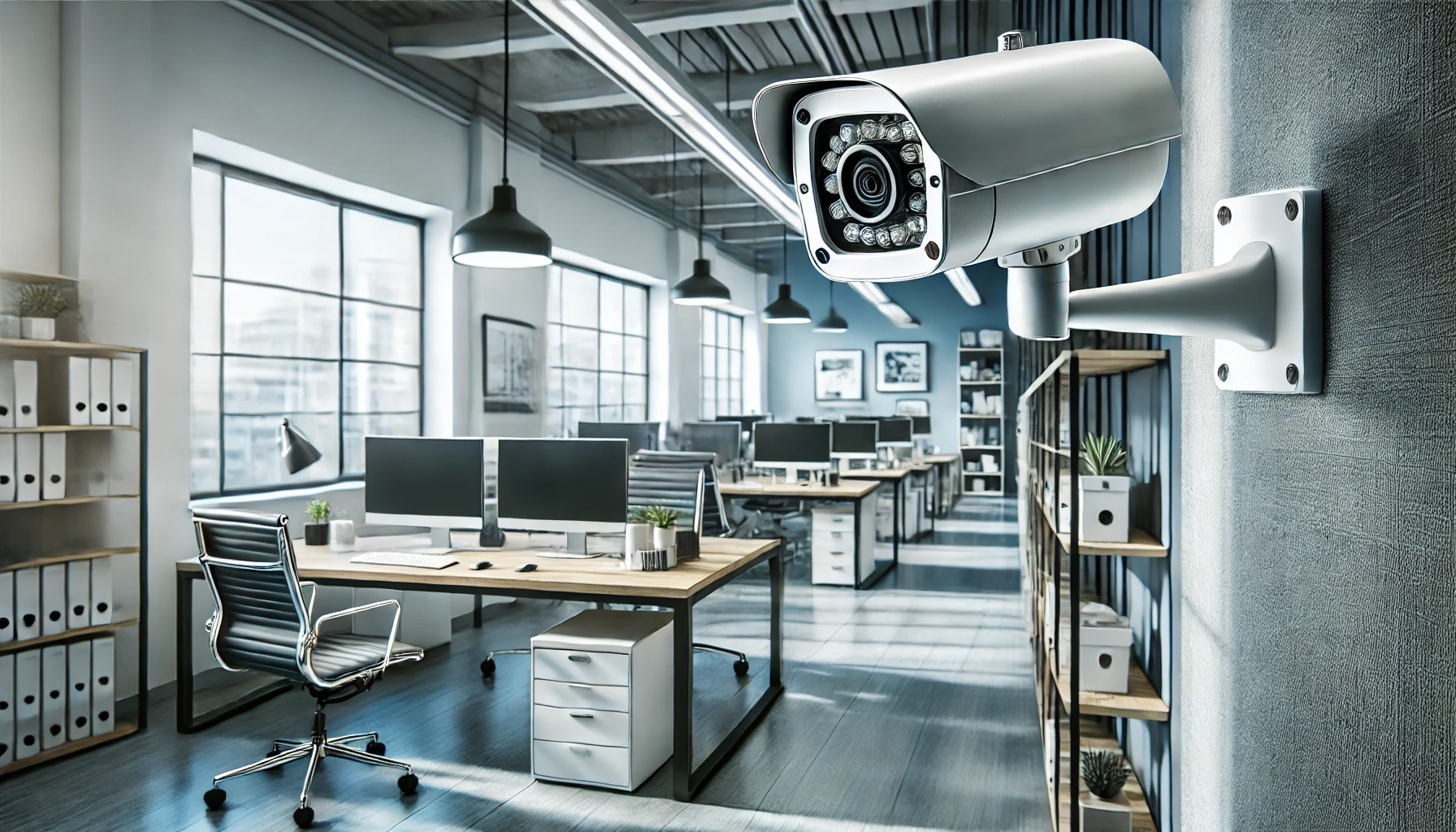

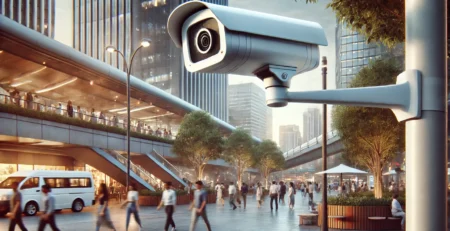
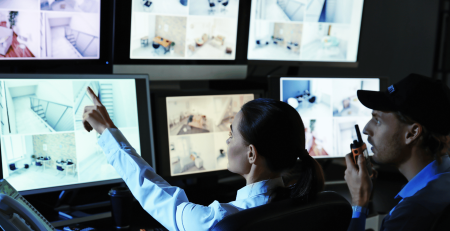
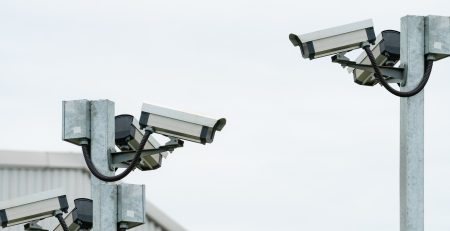
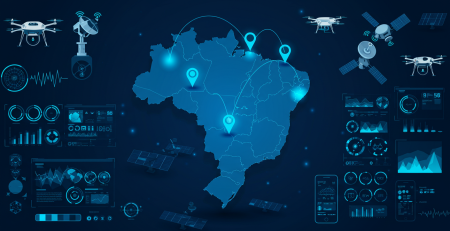
Comments (14)
💡 O CFTV desempenha um papel crucial na segurança pública, funcionando como um aliado na prevenção e resolução de crimes! Sua eficácia aumenta ainda mais quando integrado com outras tecnologias.
👉 Quer aprofundar seus conhecimentos sobre #Soluções Integradas de CFTV? Explore mais conteúdos exclusivos em nosso blog na seção #Soluções Integradas de CFTV.
🤝 Envie um email para nosso departamento comercial! comercial@c2hsolutions.com.br
💡 A tecnologia de CFTV não apenas previne crimes, mas também promove uma sensação de segurança na comunidade. Investir em soluções integradas é fundamental para garantir a proteção eficaz.
👉 Quer aprofundar seus conhecimentos sobre #Soluções Integradas de CFTV? Explore mais conteúdos exclusivos em nosso blog na seção #Soluções Integradas de CFTV.
🤝 Envie um email para nosso departamento comercial! comercial@c2hsolutions.com.br
💡 A implementação de CFTV na segurança pública não apenas aumenta a proteção, mas também promove a sensação de segurança na comunidade. A tecnologia avança constantemente, oferecendo soluções cada vez mais eficazes!
👉 Quer aprofundar seus conhecimentos sobre #Soluções Integradas de CFTV? Explore mais conteúdos exclusivos em nosso blog na seção #Soluções Integradas de CFTV.
🤝 Envie um email para nosso departamento comercial! comercial@c2hsolutions.com.br
💡 A integração de CFTV é fundamental para garantir a segurança pública, proporcionando monitoramento eficaz e prevenção de crimes. Com as tecnologias em constante evolução, é essencial se manter atualizado!
👉 Quer aprofundar seus conhecimentos sobre #Soluções Integradas de CFTV? Explore mais conteúdos exclusivos em nosso blog na seção #Soluções Integradas de CFTV.
🤝 Envie um email para nosso departamento comercial! comercial@c2hsolutions.com.br
💡 A implementação de CFTV não só aumenta a segurança, mas também fortalece a confiança da comunidade. Cada câmera é um passo em direção a um ambiente mais seguro e protegido.
👉 Quer aprofundar seus conhecimentos sobre #Soluções Integradas de CFTV? Explore mais conteúdos exclusivos em nosso blog na seção #Soluções Integradas de CFTV.
🤝 Envie um email para nosso departamento comercial! comercial@c2hsolutions.com.br
💡 O CFTV não apenas aumenta a segurança pública, mas também proporciona um ambiente mais seguro para todos. Cada câmera instalada é um passo em direção à tranquilidade da comunidade!
👉 Quer aprofundar seus conhecimentos sobre #Soluções Integradas de CFTV? Explore mais conteúdos exclusivos em nosso blog na seção #Soluções Integradas de CFTV.
🤝 Envie um email para nosso departamento comercial! comercial@c2hsolutions.com.br
💡 A implementação de CFTV é essencial para aumentar a segurança pública, proporcionando monitoramento efetivo e prevenção de crimes. Essas soluções inovadoras não apenas protegem, mas também garantem a tranquilidade da comunidade!
👉 Quer aprofundar seus conhecimentos sobre #Soluções Integradas de CFTV? Explore mais conteúdos exclusivos em nosso blog na seção #Soluções Integradas de CFTV.
🤝 Envie um email para nosso departamento comercial! comercial@c2hsolutions.com.br
💡 A implementação eficaz de CFTV não só melhora a segurança pública, como também promove a sensação de proteção na comunidade. Investir nessas tecnologias é garantir um ambiente mais seguro para todos!
👉 Quer aprofundar seus conhecimentos sobre #Soluções Integradas de CFTV? Explore mais conteúdos exclusivos em nosso blog na seção #Soluções Integradas de CFTV.
🤝 Envie um email para nosso departamento comercial! comercial@c2hsolutions.com.br
💡 A implementação de CFTV é crucial não apenas para a prevenção de crimes, mas também para a criação de uma comunidade mais segura e tranquila. Com tecnologias avançadas, podemos transformar a segurança pública de forma eficaz!
👉 Quer aprofundar seus conhecimentos sobre #Soluções Integradas de CFTV? Explore mais conteúdos exclusivos em nosso blog na seção #Soluções Integradas de CFTV.
🤝 Envie um email para nosso departamento comercial! comercial@c2hsolutions.com.br
💡 O CFTV não é apenas uma ferramenta de vigilância; é um aliado essencial na prevenção de crimes e na promoção da segurança comunitária. Invista em tecnologia que faz a diferença! 👉 Quer aprofundar seus conhecimentos sobre #Soluções Integradas de CFTV? Explore mais conteúdos exclusivos em nosso blog na seção #Soluções Integradas de CFTV. 🤝 Envie um email para nosso departamento comercial! comercial@c2hsolutions.com.br
#Soluções Integradas de CFTVImportância do CFTV na Segurança Pública#Soluções Integradas de CFTVSegurança com Inovação e Confiabilidade – C2H Solutions
#Soluções Integradas de CFTVImportância do CFTV na Segurança Pública#Soluções Integradas de CFTVSegurança com Inovação e Confiabilidade – C2H Solutions
#Soluções Integradas de CFTVImportância do CFTV na Segurança Pública#Soluções Integradas de CFTVSegurança com Inovação e Confiabilidade – C2H Solutions
#Soluções Integradas de CFTVImportância do CFTV na Segurança Pública#Soluções Integradas de CFTVSegurança com Inovação e Confiabilidade – C2H Solutions